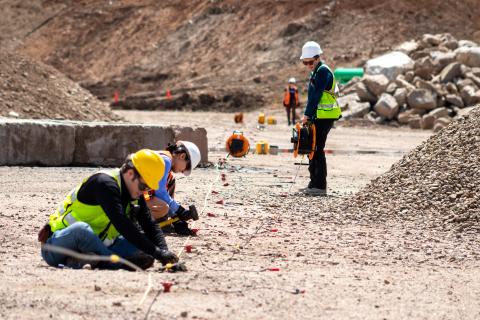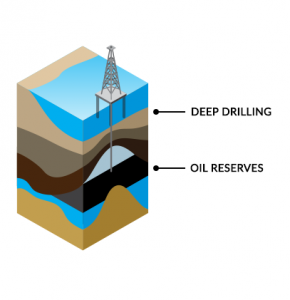All Categories
Featured
Table of Contents
Geophysical Methods Commonly Employed For Geotechnical ... in Mirrabooka Aus 2021
This work is increasingly contracted out, so consultancies supply another source of employment. Consultancy companies differ in size, from really small business to big multinationals. Some consultancies are rather specialised in using specific geophysical methods or working in specific locations, while others offer a more diverse series of services to their consumers.
The extraction of gas from landfill websites is another area of employment and this may grow in the future. Exploration companies might undertake work for building firms, water business, mining companies and ecological firms, so geophysicists might be utilized in any of these settings. Other employers consist of: geological surveysgovernment bodies and agenciesuniversities and research study institutes.


Jobs might be noted in the oil and gas sector press. Recruitment is affected by oil rate changes and the level of competitors for positions varies depending on this. Professions Days, which cover the complete series of geoscience professions and are normally participated in by a variety of essential industry companies, are run by The Geological Society.
Geophysicist Salary And Job Description 2023 in Nedlands Western Australia 2021
Some of the big oil and gas companies use a complete two-year structured training program throughout the breadth of geophysics, including the chance to experience operate in different teams before specialising in one location. Your training may consist of work on: existing wellsmagnetic and gravitational potential field information analysisresearchrock analysis. However, it's more usual for your initial training to be supplied on the job.

There might be a probationary duration throughout which you work together with a skilled colleague. Competency-based appraisals take location regularly in the majority of companies. In smaller companies, and for scholastic posts, there is unlikely to be any official training - you'll be anticipated to begin work straightaway and choose up skills as you go along.
If you work for a smaller company, you may find that you need to take duty for arranging and funding your own development and training. If you have a geology degree, membership of The Geological Society can be helpful for networking and for keeping up to date with the industry.
Careers With Geophysics - Ocean And Earth Science ... in Beechina Aus 2021
You might also find it useful to sign up with the PESGB (The Petroleum Expedition Society of Great Britain, which has a geophysics special interest group. After a probationary period, and when you've acquired some experience, you could progress to senior geophysicist, then team leader and after that into a senior function in management.
The ease of movement between roles depends on the company structure. Study at Masters or Ph, D level in a subject related to geophysics or geosciences may help with your profession development and progression. The employment market within the oil and gas industry is extremely based on price and this might impact your chances for career progression.
For experienced geophysicists, freelance consultancy offers an excellent path for profession development. As a geophysicist, you're likely to have several jobs throughout your working life.
What Is Geophysics? in Ocean Reef Western Australia 2022
From geophysics, it's possible to focus on seismology (finishing further training to become a seismic interpreter) or to move into associated locations such as engineering geology or danger prediction.
Deciding what to study in college is a hard option. Even if you know that your field of interest lies in science, what program of research study is best for you? If you make the choice to major in physical and biological sciences and pursue a profession as a geophysicist, you're getting ready for an amazing and profitable profession.
The very first action to achieving your goal of ending up being a geophysicist is making a degree. Even for entry-level positions in the field of geoscience, you'll require a bachelor's degree (a geophysicist college degree) from a certified college or university. Geophysicists need to be able to: evaluate rocks, photographs, and other pieces of data conduct research both in the field and in labs develop maps and charts of their findings compose reports To achieve all this, trainees require a specialized education for geophysicist professions.
As stated above, you'll need a bachelor's degree in geoscience or a related discipline, such as a physical science or a natural science, to land an entry-level job. Trainees can also prepare by majoring in subjects like: Biology Chemistry Computer science Engineering Mathematics Physics The above geophysicist majors provide a more generalized technique to a single scientific discipline, however a lot of programs need trainees to take one or more geology course.
Latest Posts
Geological And Geophysical Surveys in Mullaloo Western Australia 2023
Geophysical Surveys & Mapping - Ecs Limited in Rockingham WA 2020
Marine Geophysicist in Iluka Aus 2020